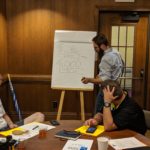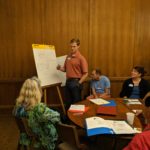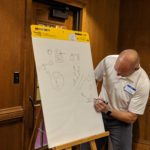We ask Keith Schilling, State Geologist and Research Scientist at the Iowa Geological Survey, the question: Why is groundwater important to the Iowa Nutrient Reduction Strategy?
Continue readingAsk a Scientist – Mapping Data and Soil Erosion
We ask Brian Gelder, Scientist II and Adjunct Assistant Professor at Iowa State University, the question: How do you use map data to estimate soil erosion?
Continue readingAsk a Scientist – Fresh Water Mussels
We ask Craig Just, Associate Professor in Civil and Environmental Engineering at the University of Iowa, the question: How does the study of fresh water mussels affect Iowans?
Continue readingAsk a Scientist – Data Mapping
We ask Brian Gelder, Scientist II and Adjunct Assistant Professor at Iowa State University, the question: What kind of data can be mapped?
Continue readingAsk a Scientist – Bulk Density
We ask Marshall McDaniel, Assistant Professor in Agronomy at Iowa State University, the question: What is bulk density?
Continue readingAsk a Scientist – Iowa Geological Survey
We ask Keith Schilling, State Geologist and Research Scientist at the Iowa Geological Survey, the question: What is the Iowa Geological Survey?
Continue readingAsk a Scientist – Soil Health Indicators
We ask Marshall McDaniel, Assistant Professor in Agronomy at Iowa State University, the question: what are indicators of soil health?
Continue readingAsk a Scientist – Communities and Flooding
2019 One Water Summit
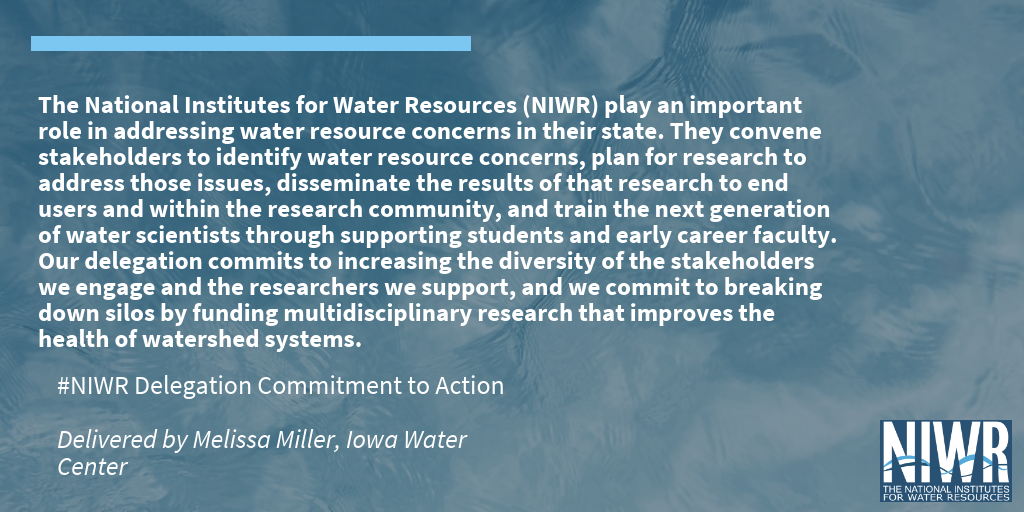
This year, several member institutes of the National Institutes for Water Resources (NIWR) attended the One Water Summit in Austin, Texas as a delegation. At the end of the conference, each delegation provided a commitment to action for what goals they seek to achieve over the next year.
NIWR’s commitment to action was delivered by Melissa Miller, Associate Director for the Iowa Water Center (see image above).
Iowa Water Center Kicks off a Learning Community for Water Resources Researchers
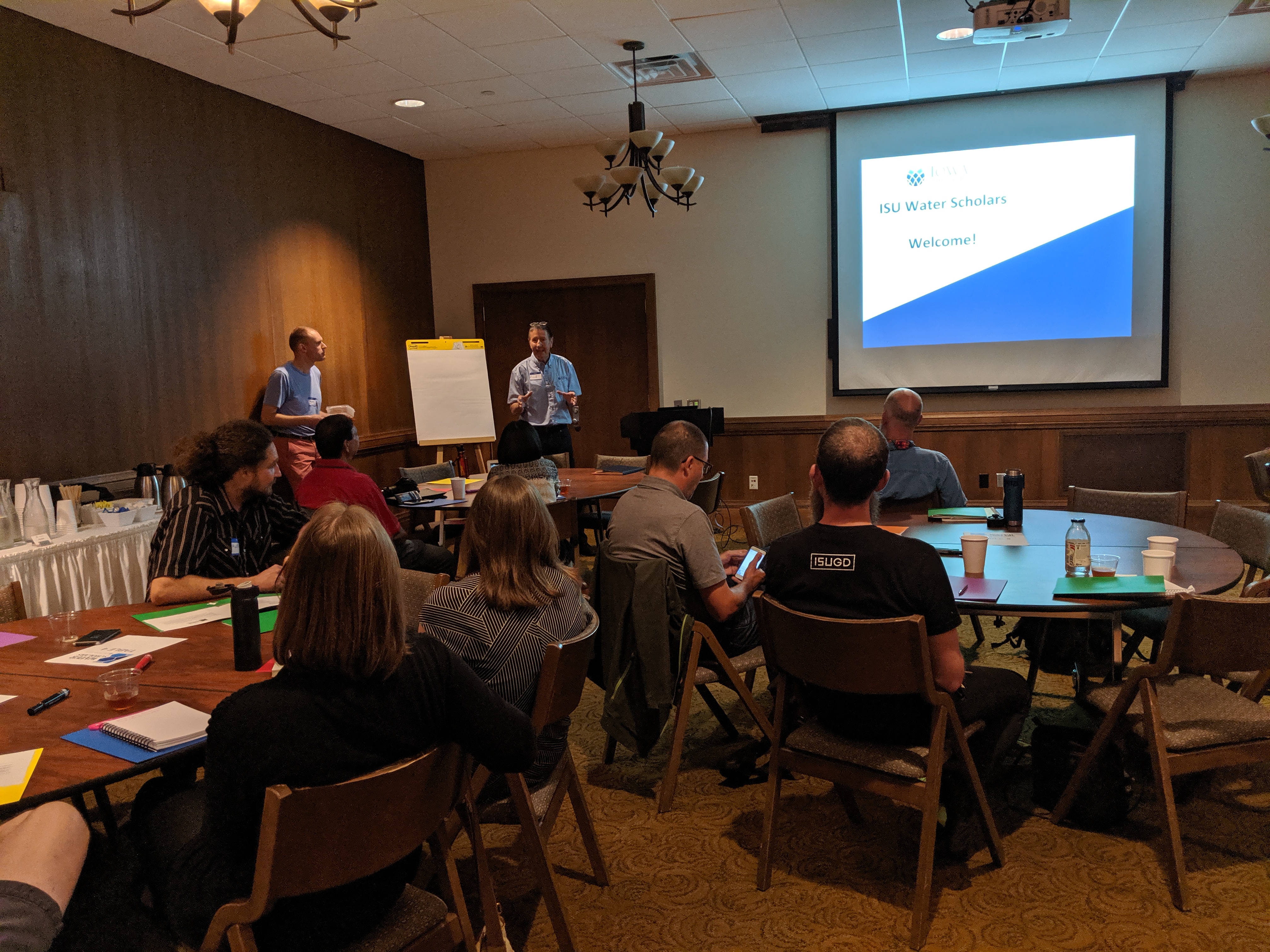
By Hanna Bates, Program Coordinator for the Iowa Water Center
On a Tuesday afternoon in early September, the Gold Room in the Iowa State University Memorial Union was filled with a diverse audience of faculty on campus from departments such as Design, Food Sciences, Natural Resources Ecology and Management, Agronomy, English, and others. As participants trickled into the room, they realized that though many of them had never met before, they have a research topic in common – water resources.
This meeting was to kick off the Iowa Water Center-led water resources research learning community, Water Scholars. This is a year-long program funded by a CEAH-OVPR New Explorations grant to support faculty research on campus. This program originated from a cursory directory search of campus departments conducted by IWC staff. This inventory led to the discovery that there are approximately 200 faculty members at Iowa State University whose research touches water in some way or another, but are working in different spaces both physically and topically. The goal of Water Scholars is to break down barriers between the arts and sciences to get researchers thinking outside the box and work together to create resilient research that addresses Iowa’s complex water resource concerns.
Water Scholars will meet on a monthly basis from September to April during the academic year. Sessions will explore professional development topics, such as science communication and grant tools, through engaging presentations. Supplanted by small group work, this program will enable attendees to make use of information given by presenters as well as give them the opportunity to build relationships with others in the water resources community on campus.
The methods we use to engage participants are, at times, unorthodox. At the first session, attendees shared their research topics through a game of Pictionary with other members of Water Scholars. This activity challenged faculty to translate research field jargon into accessible shapes and pictures on paper. As the game progressed, laughter and shared conversation could be heard throughout the room as people stepped outside of their comfort zone and got to know different research projects and interests in water from across campus.
2019-2020 is a pilot year for the Water Scholars. We plan on going statewide in the Fall of 2020 to help bring water resource faculty and professionals at college and universities across Iowa together to build communities of research that encourage the development of innovative, interdisciplinary research teams.
2019-2020 Water Scholars
- Antonio Mallarino, Agronomy
- Austin Stewart , Art and Visual Culture
- Biswa Das, Community and Regional Planning and ISU Extension
- Brian Gelder, Agricultural and Biosystems Engineering
- Carmen Gomes, Mechanical Engineering
- Chaoqun Lu, Ecology, Evolution, and Organismal Biology
- Clark Wolf, Philosophy, Political Science
- Emily Zimmerman, Natural Resource Ecology and Management
- Grace Wilkinson, Ecology, Evolution, and Organismal Biology
- Guiping Hu, Industrial and Manufacturing Systems Engineering
- John Tyndall, Natural Resource Ecology and Management
- Jonathan Claussen, Mechanical Engineering
- Keith Vorst, Food Science and Human Nutrition
- Kevin Roe, Natural Resource Ecology and Management
- Kristie Franz, Geological and Atmospheric Sciences
- Laura Merrick, Agronomy
- Linda Shenk, English
- Matthew Helmers, Agricultural and Biosystems Engineering
- Nicole Hashemi, Department of Mechanical Engineering
- Omar de Kok-Mercado, Natural Resource Ecology and Management
- Peter Moore, Natural Resource Ecology and Management
- Ramesh Kanwar, Agricultural and Biosystems Engineering
- Stewart Melvin, Agricultural and Biosystems Engineering
- William Beck, Natural Resource Ecology and Management
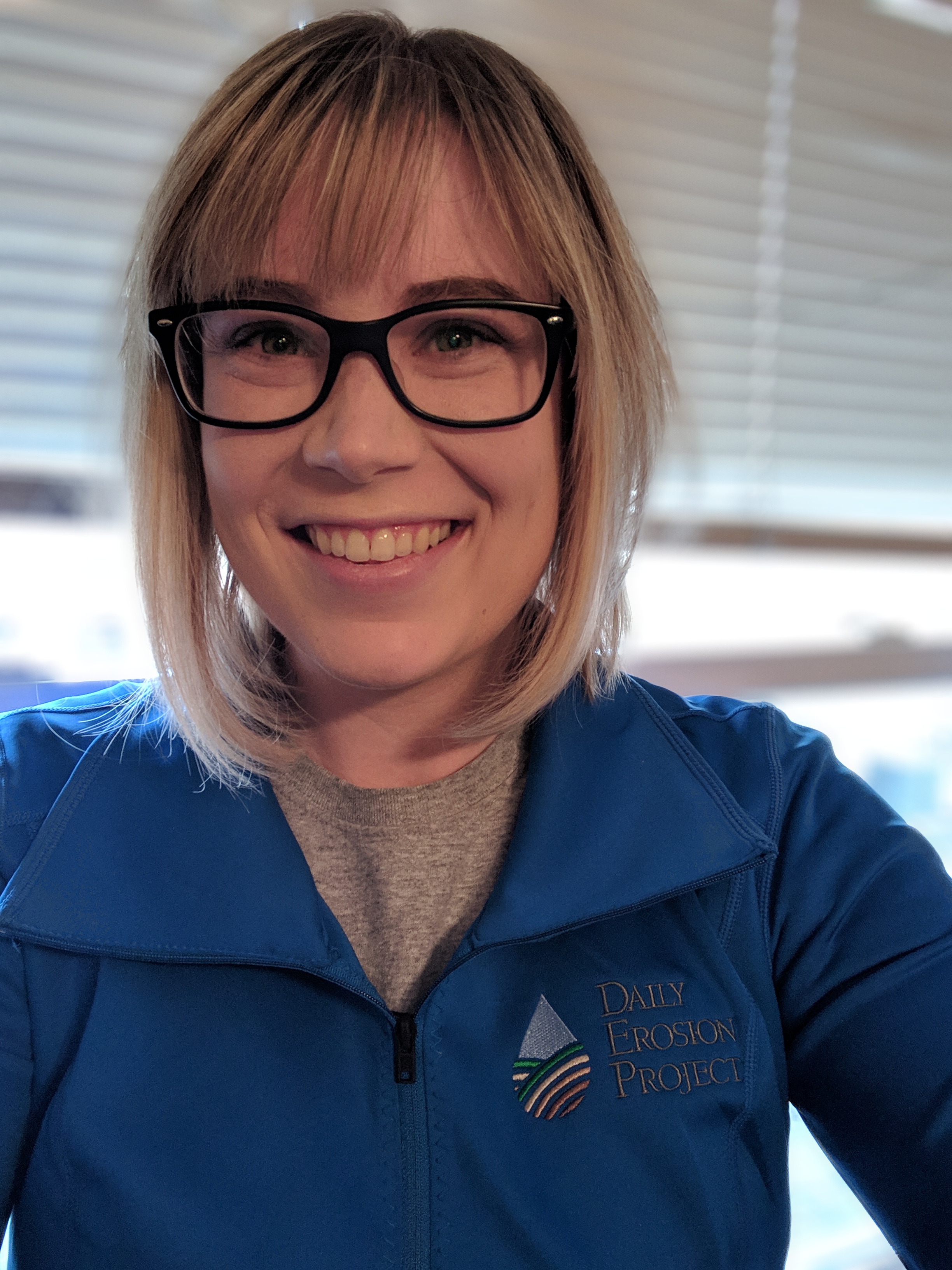 Hanna Bates is the Program Coordinator for the Iowa Water Center. She holds a BA in Anthropology from the University of Iowa and an MS in Sociology and Sustainable Agriculture from Iowa State University. She is currently working on her MBA from the University of Iowa Tippie College of Business.
Hanna Bates is the Program Coordinator for the Iowa Water Center. She holds a BA in Anthropology from the University of Iowa and an MS in Sociology and Sustainable Agriculture from Iowa State University. She is currently working on her MBA from the University of Iowa Tippie College of Business.
